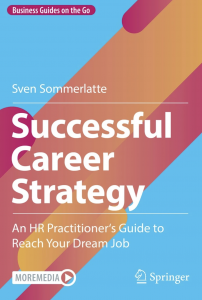In this article I would like to outline a simple framework to assess job opportunities. This will hopefully be useful for you to make the right choices in view of the career opportunities you wish to peruse, and as a side effect this can also be a great preparation for the interviews if you decide to apply for a given role. It’s a 6-step approach.
Step 1: Read the job description carefully
It is important to take the time to read the job description really carefully and to ensure that every part of it is fully clear to you. It is very likely that you will require more information about certain of the expectations or requirements, because such a job description is obviously a summary. Take the time to put down all these questions you may have.

I would also recommend that you project yourself into the role based on that job description and that you imagine how you would go about certain of the tasks that are outlined there. This might also trigger questions or points for clarification, because you might want to check if the way you would plan to tackle certain of the requirements would actually correspond to the expectations.

All of these questions should of course be used in the interview process. The fact that you have taken that time to really think more deeply about each one of the aspects will most likely be perceived very positively and this will help you ensure that you have a robust understanding about the role before you make a decision. So you see here that this first step of the assessment is indeed a good preparation for the interview. But above all it will help you understand if that role is attractive for you. I would recommend that you pay attention to your gut feeling and that you capture your first impressions. These will be useful in the subsequent assessment steps and can easily get lost, if you do not write them down at that first reading of the job description.
Step 2: Conduct a due diligence of the company
In a second step you should conduct a thorough due diligence of the company. You will most likely find a lot of information online about the company, its structure, strategy and products. In addition, you should search for information about the market sector that company operates in to understand what the future growth perspectives are and what market or technological trends might impact that sector. It is obviously important to analyze the competitive positioning of the company and what its financial health is. You should be able to find information about this in the publications of financial analysts, especially if that is a publicly listed company.

I would suggest that you follow the recommendation from Warren Buffet, who does invest only if he understands the company strategy. The same applies here, because a career decision is at least as important as an investment decision. You should consider applying only if you have a positive overall impression about the current and future positioning of that organization.
Experience shows that it is much more fun to work in a company that is doing well instead of a company that is struggling or even fighting for survival. Your due diligence will help you assess this.

And you should of course here again capture any questions you have which will show that you have well prepared the interview in case you apply for the role.
Step 3: Purpose, values and company culture
Please ensure that you dedicate enough time to understand the purpose and values of that organization as well as its company culture. It is crucially important to ensure that these aspects match your needs and expectations.
As an example, some companies have a very high level of internal competition. This might suite some candidates who might find this stimulating, but it might not work at all for others who might look a more friendly company culture.

You can find a lot of information on these aspects in social media and through testimonials of employees. But you might also have the opportunity to leverage your personal network to reach out to people who might know the organization from within and who can share their impressions.

In case you still have points that need clarification concerning purpose, values or culture, it is also possible to bring those up in the interview phase. The recruiters will usually be willing to share the information you need to make the right decision for yourself, because that is also important from a company perspective.
Step 4: Self-assessment
As a next step, I would recommend that you put yourself into the shoes of the recruiting manager and that you assess yourself. You can take the job requirements and the specifications concerning the profile as they are outlined in the job description and compare this to your profile. Do you have the required technical expertise? What is the past experience you can bring? How have you dealt with certain situations in the past that were similar to what is expected in that job? What is the leadership and people management experience that you bring and does that correspond to the level that is expected here? How does your personality match with the specifications?

This self-assessment will help to understand if that role brings the right level of stretch. In case the gap is too big, you might struggle. In case your current experience level is too close to the role, that will not be a sufficiently stimulating learning experience. It is therefore helpful to assess this carefully and to be able to check the different facets of the role to get a more detailed understanding of the gap in view of both the technical and the leadership related requirements.
This will of course also help you understand where your strengths are and that is obviously helpful again for the interview preparation.
Step 5: Career strategy
I have outlined in a number of my videos how to define your personal career strategy. I have emphasized the importance of defining this strategy because it will serve as a compass for your future career choices. It will help you evaluate if a job opportunity is a relevant step in view of your career aspiration. With other words, it will allow you to go beyond just assessing a job opportunity in view of the short-term future, but it allows you to understand if that next role matches with the overall career plan that you have established for yourself.

One of the key questions concerns the experience base: does that role offer you the possibility to expand your experience base in such a way that you will be better prepared for subsequent steps that will bring you closer to your career aspiration? Does it bring you the relevant additional functional, managerial or international experience you will need to be ready in the future for the job you want to reach?
Step 6: Personal aspects
It is important not to neglect the personal aspects related to a specific job opportunity. That includes for example the question of location and of distance between the workplace and your home. You should also carefully consider what life-work-balance that new role would offer you.

You may want to check the travel requirements, if that is relevant and it could be worthwhile understanding possible international mobility expectations the company would have related to that specific role or even possible future roles you would aspire to.

I guess it is needless to say that here again, any of these points that cannot be clarified based on the information that is available before the job interview should be asked when you will meet the recruiting team. Being clear about your personal needs is an important basis to make the right career choices for yourself.
These 6 steps should allow you to gain all the necessary information you need to apply for the right positions and to be best prepared for interviews, in case you decide to compete for a role. I wish you every success!
More information in my book:
Sven Sommerlatte : Successful Career Strategy – An HR Practitioner’s Guide to Reach Your Dream Job (Springer, June 2023). ISBN: 978-3-662-66790-3
